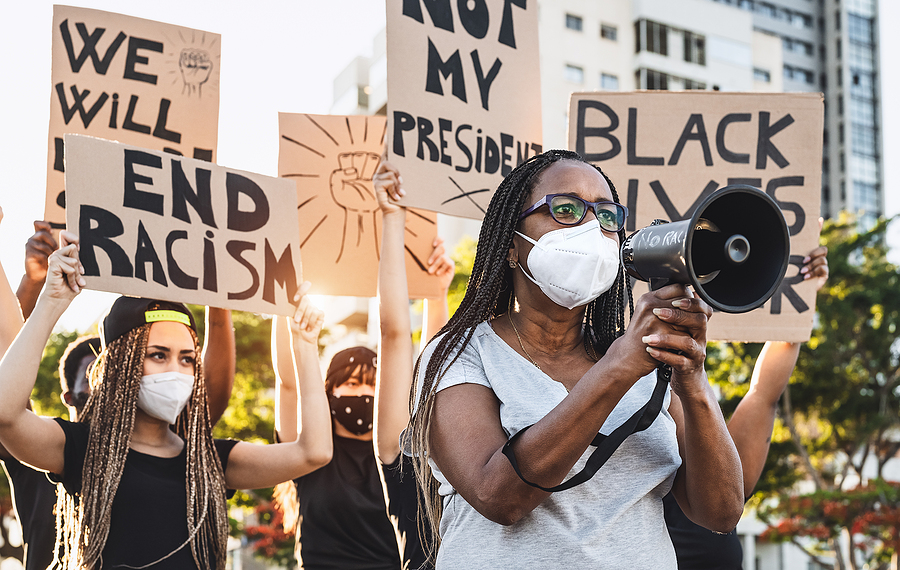The maternal health crisis in the United States has reached alarming proportions, with Black women facing disproportionately high rates of maternal mortality and morbidity.
According to the Centers for Disease Control and Prevention (CDC), Black women are nearly three times more likely to die from pregnancy-related complications than white women. Despite advancements in medical technology and healthcare access, systemic racism, implicit bias, and structural barriers continue to contribute to these staggering disparities.
This article explores the root causes of the maternal health crisis, examines its impact on Black mothers, and highlights potential solutions to ensure equitable and just maternal healthcare for all.
The Stark Reality: Maternal Mortality Among Black Women

Maternal mortality refers to the death of a woman during pregnancy, childbirth, or within one year of giving birth due to complications related to pregnancy. The statistics paint a grim picture for Black mothers in America:
- Black women are 2.6 times more likely to die from pregnancy-related causes than white women.
- In some states, such as Louisiana and Georgia, the disparity is even more pronounced, with Black maternal mortality rates exceeding four times that of white women.
- Nearly 60% of all maternal deaths are preventable, according to the CDC.
Beyond mortality, Black women also face disproportionately high rates of severe maternal morbidity (SMM), a term that encompasses life-threatening pregnancy complications such as preeclampsia, hemorrhage, and cardiomyopathy. These conditions can lead to long-term health consequences, including chronic illness, disability, and mental health challenges.
The Role of Systemic Racism in Healthcare

Systemic racism within the healthcare system is a primary driver of maternal health disparities. Several factors contribute to the mistreatment and neglect of Black women during pregnancy and childbirth:
1. Implicit Bias Among Healthcare Providers
Studies show that healthcare professionals often dismiss or minimize the pain and concerns of Black women. Many Black mothers report feeling unheard or ignored when expressing symptoms, leading to delayed diagnoses and inadequate treatment.
2. Socioeconomic and Environmental Barriers
While socioeconomic status plays a role, disparities persist across all income and education levels. Even affluent Black women, such as tennis star Serena Williams, have publicly shared their harrowing childbirth experiences due to medical neglect.
Environmental stressors, such as exposure to pollution, food deserts, and inadequate housing, also exacerbate health risks during pregnancy.
3. The Weathering Effect and Chronic Stress
The cumulative impact of racial discrimination and social stress—known as the weathering hypothesis—leads to premature aging and deteriorating health outcomes among Black women.
This chronic stress affects pregnancy outcomes, increasing the likelihood of preterm birth, low birth weight, and maternal complications.
Addressing the Crisis: Policy and Community-Based Solutions

Tackling the Black maternal health crisis requires a multi-faceted approach that includes policy changes, community-driven initiatives, and medical education reform.
1. Expanding Access to Quality Maternal Care
Medicaid, which covers nearly half of all U.S. births, should be expanded to ensure postpartum coverage beyond the standard 60-day period, instead of ongoing moves to scrap it. The Black Maternal Health Momnibus Act, introduced by Congress, aims to address these disparities by funding community-based organizations and expanding maternal health services.
2. Implicit Bias Training for Healthcare Providers
Hospitals and medical institutions must implement implicit bias training to educate providers on recognizing and addressing racial disparities in maternal care.
Standardizing protocols for diagnosing and managing pregnancy-related complications can also reduce subjective decision-making influenced by bias.
3. Culturally Competent and Community-Based Care
Increasing the number of Black midwives, doulas, and maternal health advocates can help improve outcomes for Black mothers.
Community-based organizations, such as Black Mamas Matter Alliance and the National Birth Equity Collaborative, provide critical support and advocacy for Black maternal health.
4. Strengthening Data Collection and Research
Comprehensive data collection on maternal health outcomes is essential to identifying disparities and developing targeted interventions.
Federal and state agencies must invest in research that explores the intersection of race, maternal health, and healthcare access.
A Call to Action
The maternal health crisis disproportionately affecting Black women is a glaring public health emergency that demands immediate attention.
While systemic racism in healthcare is deeply entrenched, targeted policy reforms, community-led solutions, and medical education improvements can help bridge the gap in maternal health equity.
By amplifying the voices of Black mothers, advocating for policy change, and holding healthcare institutions accountable, we can create a future where every Black woman receives the dignified, respectful, and high-quality maternal care she deserves.
